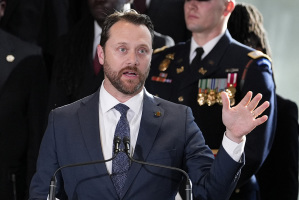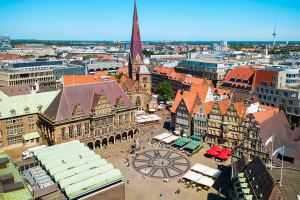World Social Forum: How Globalization is Challenging the Churches
"Thanks to the World Social Forum, we're better prepared for the meeting we'll be having this year with the International Monetary Fund and the World Bank," says Rogate Mshana, who heads the World Council of Churches' (WCC) programme on economic justice.
Should churches engage in dialogue with international financial institutions like the IMF and the World Bank? And if so, how? These questions, amongst others, sparked a heated debate at two of the workshops offered by the WCC at the World Social Forum at Porto Alegre. The first - "Water is life" - dealt with moves to privatize drinking water supplies, while the second discussed "Alternatives to economic globalization".
Opinions were divided. Previous attempts at dialogue with these institutions have shown that they do not accept that their policies are increasing rather than reducing poverty. "They're not willing to listen to any criticism of their policies, and even when they do listen, they're not ready to change," is how Mshana sums it up. "That's why some people think dialogue is pointless."
So why is the WCC having discussions with them? "It will be a meeting, not a dialogue," Mshana explains. "Each side will set out its position, and we'll see if there is any point in continuing the process. In other words, we'll see if there is any chance of these institutions changing." If the answer is no, there will be no further meetings, "but at least it will have served to make the respective positions clear to the churches".
The churches' criticism of neoliberal globalization must be based on theological as well as economic grounds. Behind the Forum workshops was the WCC's desire to develop a spirituality of resistance. "We have seen that the neoliberal paradigm is a new Tower of Babel, an arrogant project that aims to impose a uniformity that is contrary to God's will for a kingdom that respects diversity," says Mshana. "The churches have a great opportunity here for prophetic condemnation and education."
Having coordinated the workshops, "Our aim was to share and evaluate experiences and methodologies in searching for alternatives to economic globalization," explains Mshana, "and we are agreed on the importance of continuing the work of research, education and information on these problems."
The churches in particular have an enormous amount of work to do in this field. "When it comes to choosing between the technical or the ethical approach in matters such as access to clean water, between the market or human rights, the participants are adamant that priority must go to the latter," he emphasizes.
"The churches must work very hard to bring pressure to bear on the international financial institutions not just to go along with the market solution." If this pressure fails to achieve results, one suggestion from the workshops was to direct an awareness-building campaign at bondholders, inciting them to organize a boycott of World Bank bonds.
The workshops also tackled the subjects of world trade, the international financial system and debt, all of which, in their present form, are harmful to the poor. With regard to trade, participants gave their backing to campaigns for fair trade like the "Trade for people, not people for trade" campaign sponsored by the Ecumenical Advocacy Alliance.
The international financial system is a "lottery whose winnings flow from the South to the North", says Mshana. It needs to be reformed, and mechanisms need to be put in place to limit the arbitrary movement of speculative capital and plug the holes to make sure that the capital invested in poor countries actually stays there and is used for development.
As far as the new methods of debt cancellation are concerned, these are inadequate and do not solve the problem, according to Mshana. What is needed is total cancellation and the introduction of a whole new system. One striking proposal was for an International Court under United Nations aegis, competent to judge the legitimacy of debts, taking into account the joint responsibility of debtors and creditors.
"We still have a lot of work to do in order to raise the general level of awareness in the churches about matters of international finance, debt and trade," Mshana concludes. The Tower of Babel also seemed indestructible until God decided to act.
The WCC delegation is participating at the World Social Forum within the framework of an Ecumenical Caucus set up by the WCC, the Lutheran World Federation, the Ecumenical Advocacy Alliance, the Latin American Council of Churches and an ecumenical coalition of Brazilian churches and related organizations.
Delegation members are leading a series of workshops showing links between Christian spirituality and examples of resistance against the unjust world order by churches and social and ecumenical organizations.
By WCC





























